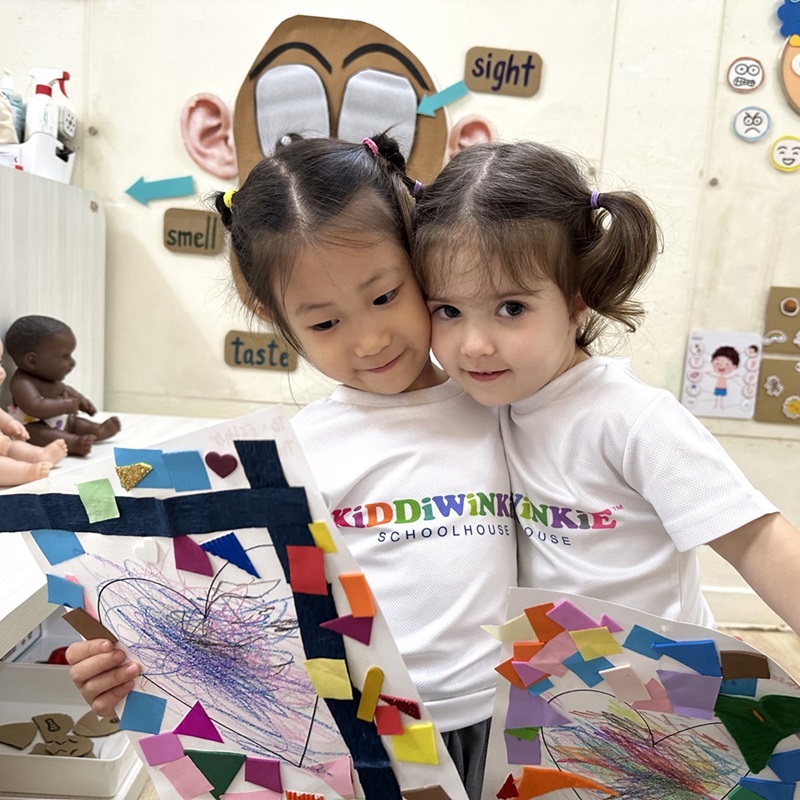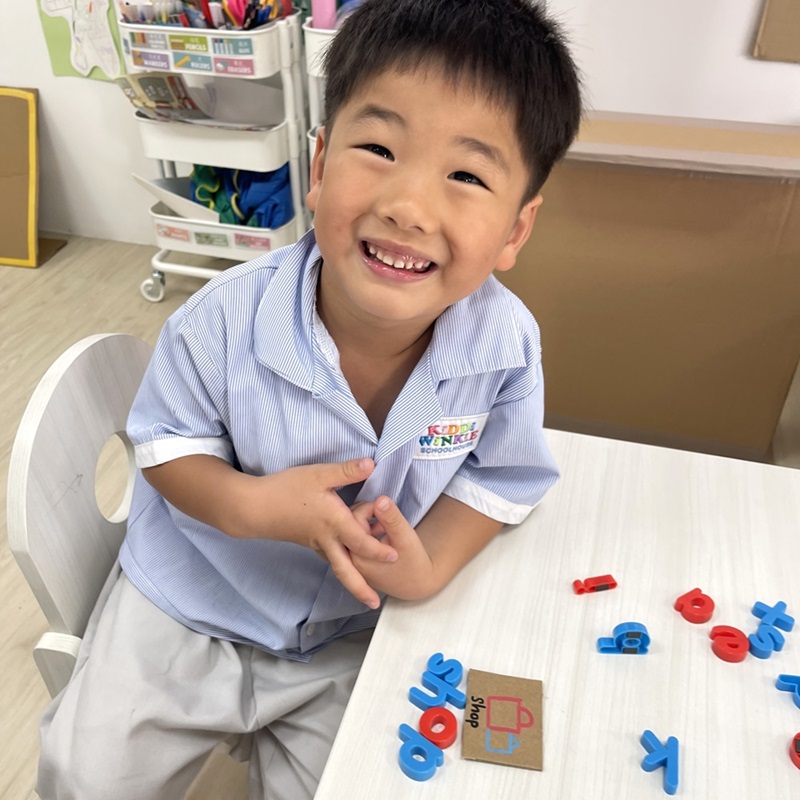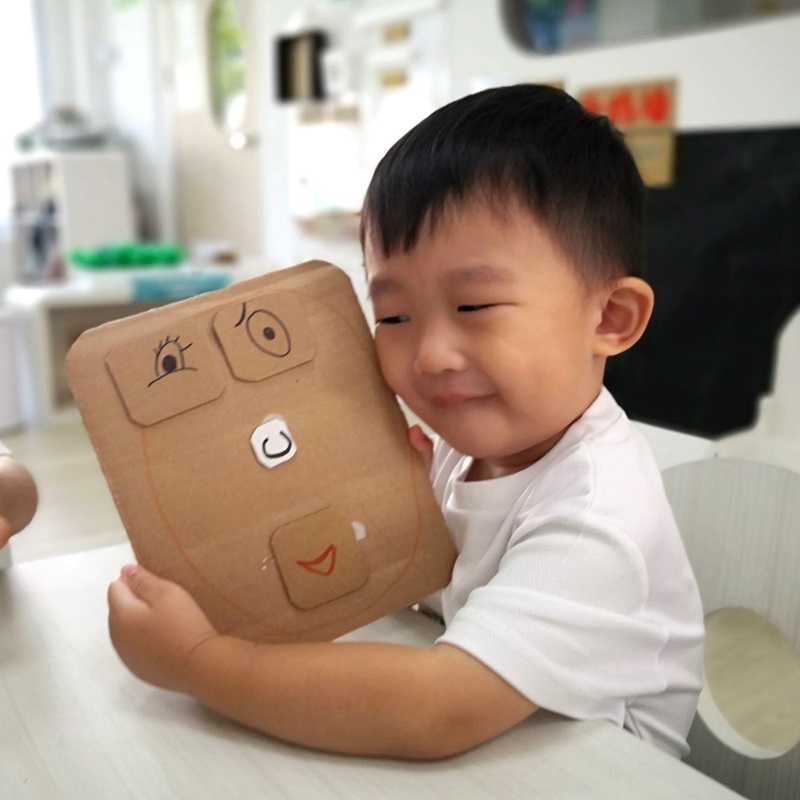
If it’s your first time looking at pre-primary school programmes for your child, you might be wondering what nursery and pre-nursery refer to.
Pre-primary school is also known as preschool which comprises multiple levels such as Infant Care, Playgroup, Pre-nursery & Nursery (these may also be known as Nursery 1 and Nursery 2), Kindergarten 1 (K1) and Kindergarten 2 (K2).
In fact, playgroup is for the smaller tots from 18 months to 2 years old, upon their transition from infant care. They will then move to Pre-Nursery [or Nursery 1 (N1)] in the year that they turn 3, and Nursery [or Nursery 2 (N2)] the following year that they turn 4 years old.
| Playgroup | From 18 months to 2 years old |
|
Pre-Nursery/ Nursery 1 |
In the year they turn 3 years old |
|
Nursery/ Nursery 2 (N2) |
In the year they turn 4 years old |
Attending playgroup and pre-nursery can be a very beneficial and positive experience for your little one, with resources and social connections that can only be found in a preschool environment.
Apart from the obvious learning benefits, children will also develop increased confidence and independence, socialise well with their peers, and will be better prepared for kindergarten and thereafter, primary school.

Learning and development for children aged 3 to 4
The brains of toddlers and preschoolers undergo a truly breathtaking amount of growth and development in these early years. During this time, their brains are developing and perfecting a complex network of connections intoetter comprehend the world around them.
Between the ages of 3 to 4, you will find that your little ones will be able to:
● Climb the stairs without support
● Hop and stand on one foot
● Draw recognisable shapes
● Learn, identify and write alphabets
● Converse to some extent with strangers
● Use short phrases and sentences
● Engage in creative and imaginative play
● Cooperate and share with other children
● Conceive themselves as individuals with their own emotions

At this age, your child will be developing a better sense of memory. They will be able to recite parts of nursery rhymes or recognise familiar tunes. You may be surprised how quickly they start to pick up vocabulary as well as recite numbers or the alphabet. Reading, singing, playing and interacting with children meaningfully will help to stretch them to their fullest developmental potential.
Playgroup aims to introduce children to a fun learning environment with other little ones around their age. The programme also helps them settle in for potentially longer hours in the pre-nursery and nursery levels. Children in both pre-nursery and nursery are encouraged to explore the world around them through music, stories, and playtime. They learn to coexist and cooperate with their friends and develop an understanding of what a routine and schedule are, as well as how to follow simple rules.
At 3 to 4 years of age, your little ones will be able to communicate their needs to their friends and teachers quite well - and will be able to tell you what they learnt in school each day! Watching your child grow in leaps and bounds under the warm care of dedicated and trained caregivers is truly fulfilling.
Pre-Nursery and Nursery prepare children for Kindergarten and Primary 1
The Nurturing Early Learners or NEL Framework, which is provided by MOE to all preschools in Singapore, sets out guidelines for quality teaching and learning of our children aged 4 to 6, and the learning goals for children at the end of their preschool education. The aim of the NEL Framework is to nurture the joy of learning and children’s holistic development.
Preschool curricula are specifically designed to work towards achieving these goals, as well as prepare them for academic rigor. Therefore, the foundation needs to be established: a good pre-nursery and nursery programme form the basis for higher learning as the children get ready to progress to kindergarten and thereafter to primary school.
The NEL framework, for example, directs that at the end of preschool education, children should:
● Know what is right and what is wrong
● Be able to share and play with others
● Be able to show care and respect for others
● Be curious and able to explore
● Be able to communicate their thoughts and feelings
● Be comfortable and happy with themselves
● Have developed physical co-ordination, healthy habits, and enjoy a variety of arts experiences
● Love their families, friends, teachers and people in their community
With all these skills and abilities, a child could enter primary school confident that they would know how to integrate socially, communicate their needs to friends and teachers, and be developmentally ready to sit and pay attention in a learning environment very different from preschool.
For example, KiddiWinkie Schoolhouse maps its core programmes closely to the NEL framework, including loose parts play, which stimulates creative and critical thinking . Other than literacy and numeracy, problem-solving is a key skill for children to pick up in their early years, so that they can understand stories, problem sums, solutions, and many more.

The importance of pre-nursery and nursery programmes
The value of early childhood education cannot be stressed enough. With a sturdy, solid foundation in the basics, parents can be comfortable and confident sending their children to kindergarten and primary school knowing that they are set up for success.
To find out more about preschool programmes that encourage children to tap into their curiosity, creativity, and interest in learning, book a tour to learn more about KiddiWinkie Schoolhouse's inquiry-based approach.
FAQ Section
How can I prepare my child for Pre-Nursery and Nursery?
To prepare your child for pre-nursery and nursery, focus on fostering independence, routine, and social skills. Encourage activities like dressing themselves and reading together to stimulate their development. Additionally, expose them to group settings for peer interaction and sharing. Prioritise open communication, positive reinforcement, and exploration to build confidence and curiosity. This approach will help them transition into the classroom with readiness and excitement.
Where can I find a list of KiddiWinkie Schoolhouse’s Programme and Activities?
For the Early and Preschool Years Programme, you may find them here. If you are looking for the Infant Care programme, you may find them here.
Are the activities catered to different age groups?
Yes, the programmes are specially designed to suit the needs of children in different age groups. They are grouped according to Infant Care (2 to 17 months), Early Years (18 months to 3 years old) and Preschool Years (4 to 6 years old).
If an activity is common for different age groups, will they learn the same things?
While activities may span different age groups in childcare, kindergarten, and preschool, the learning outcomes evolve with age. Foundational skills remain consistent, but complexity increases with older children. For instance, a painting activity may start with basic colour recognition for younger children and progress to colour mixing and artistic expression for older ones. Similarly, storytelling may advance from simple narratives to more complex structures, ensuring learning remains engaging and developmentally appropriate at every stage.
How can I track my child’s progress from these activities?
Parents will receive monthly developmental updates, along with weekly updates via LittleLives, a communication platform. Additionally, bi-annual Parent-Teacher Conferences will provide opportunities for parents to gain deeper insights into their child’s developmental progress.
What if my child cannot keep up with the learning from these activities?
Rest assured that our school is committed to supporting every child's learning journey. If your child is facing any challenges, our educators will provide assistance and extra support when needed. We believe in fostering a nurturing environment where every child can thrive academically and personally.
What type of curriculum does KiddiWinkie Schoolhouse offer?
At KiddiWinkie Schoolhouse, we offer a guided inquiry curriculum, along with specialised programmes and embedded enrichment activities, which fosters an environment where children are encouraged to explore and discover. Through this approach, they showcase their creativity while preparing for preschool and beyond. We aim to nurture happy, intelligent, expressive, and resilient young individuals.
Follow us on social media to stay updated on our latest updates and happenings:





